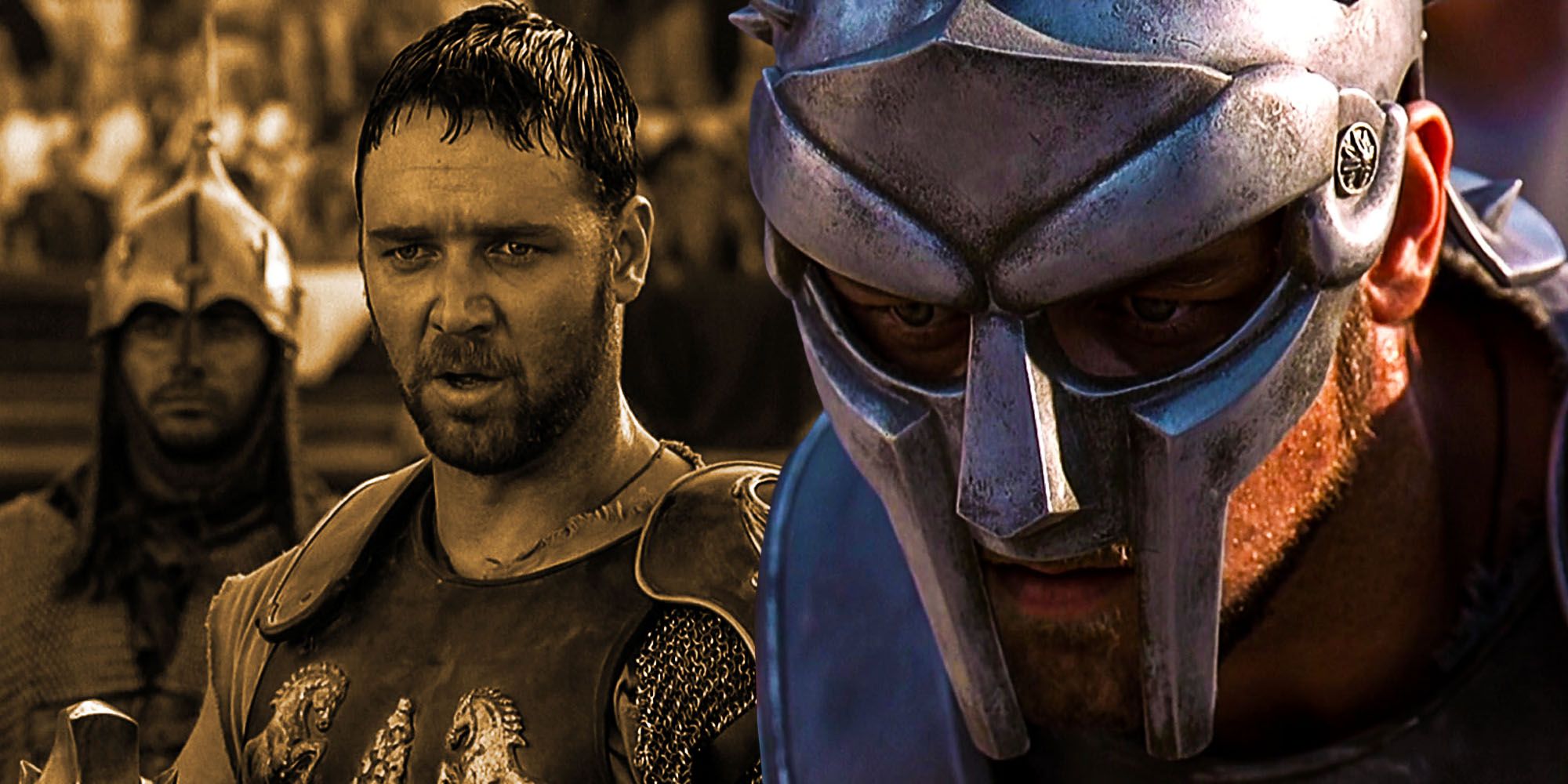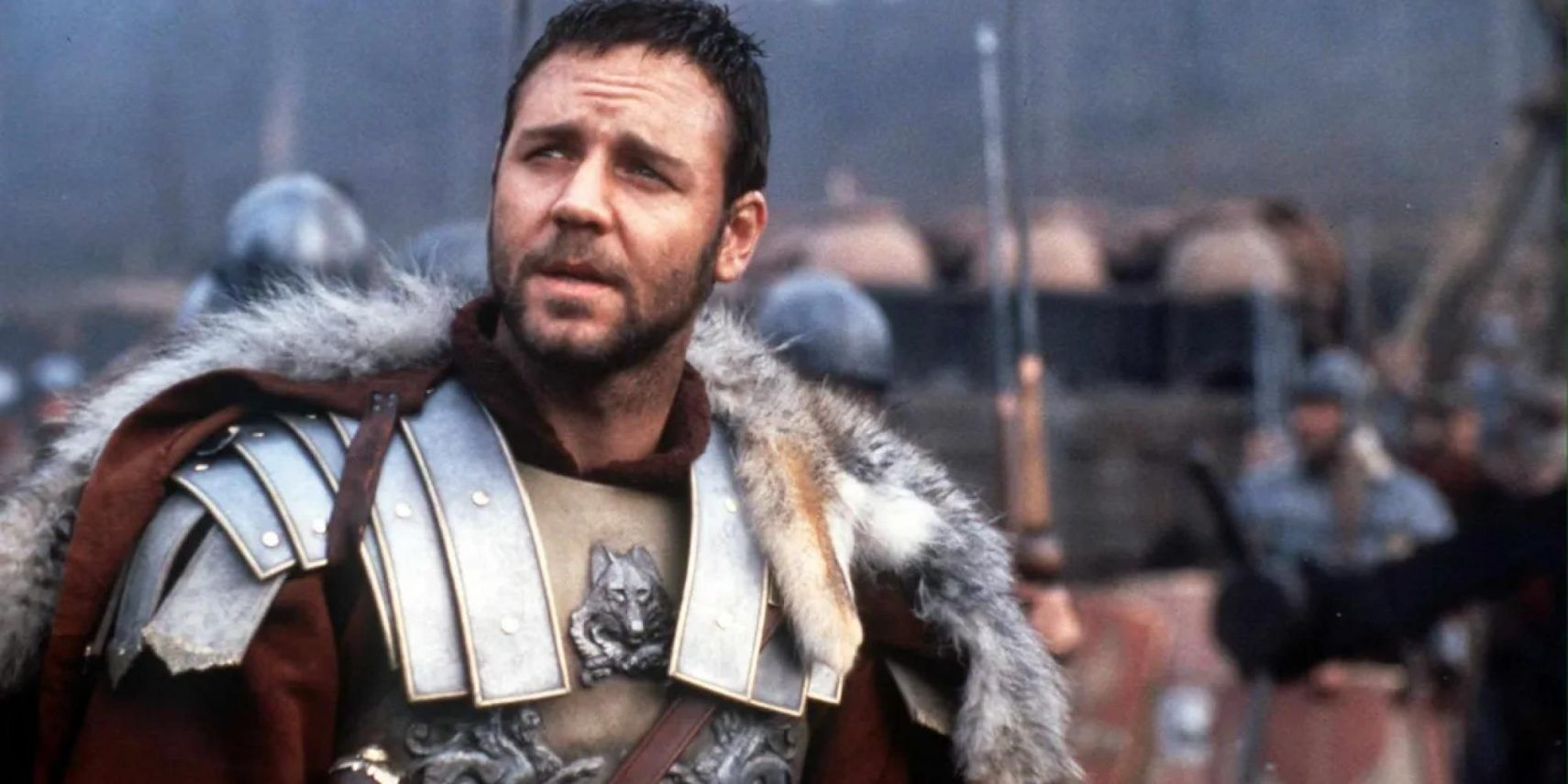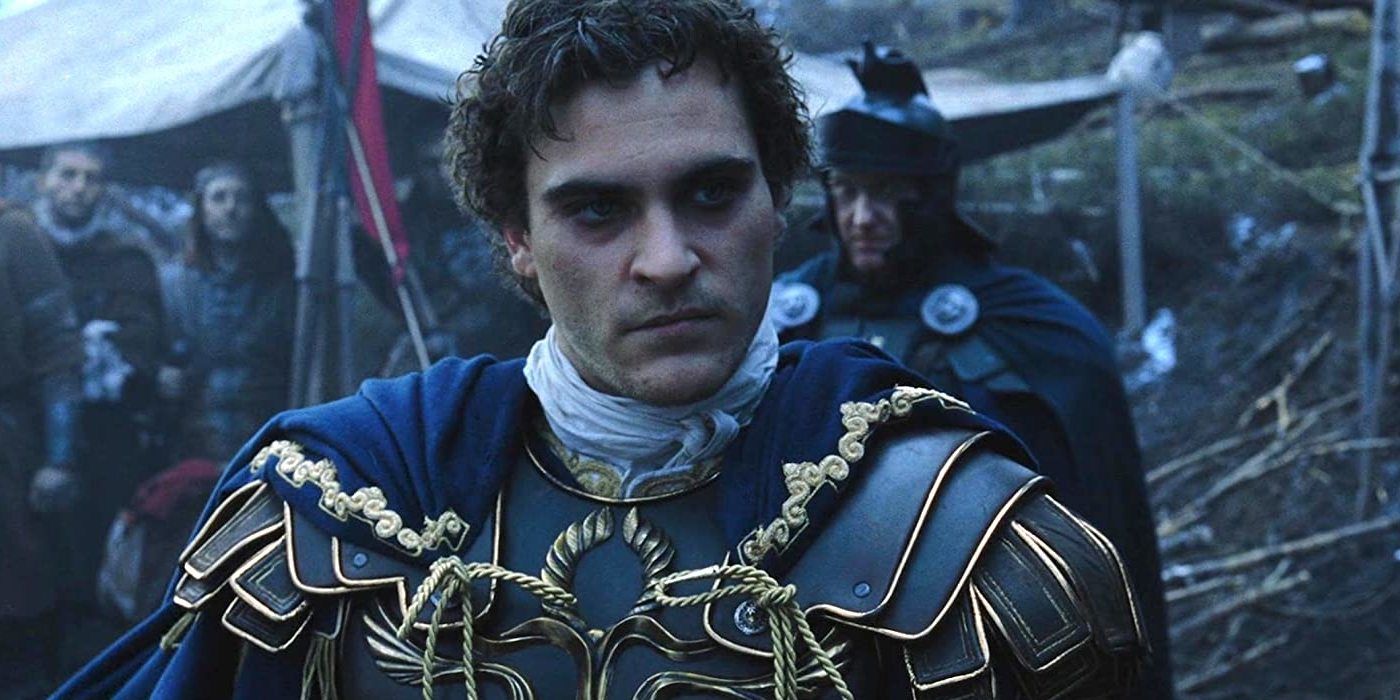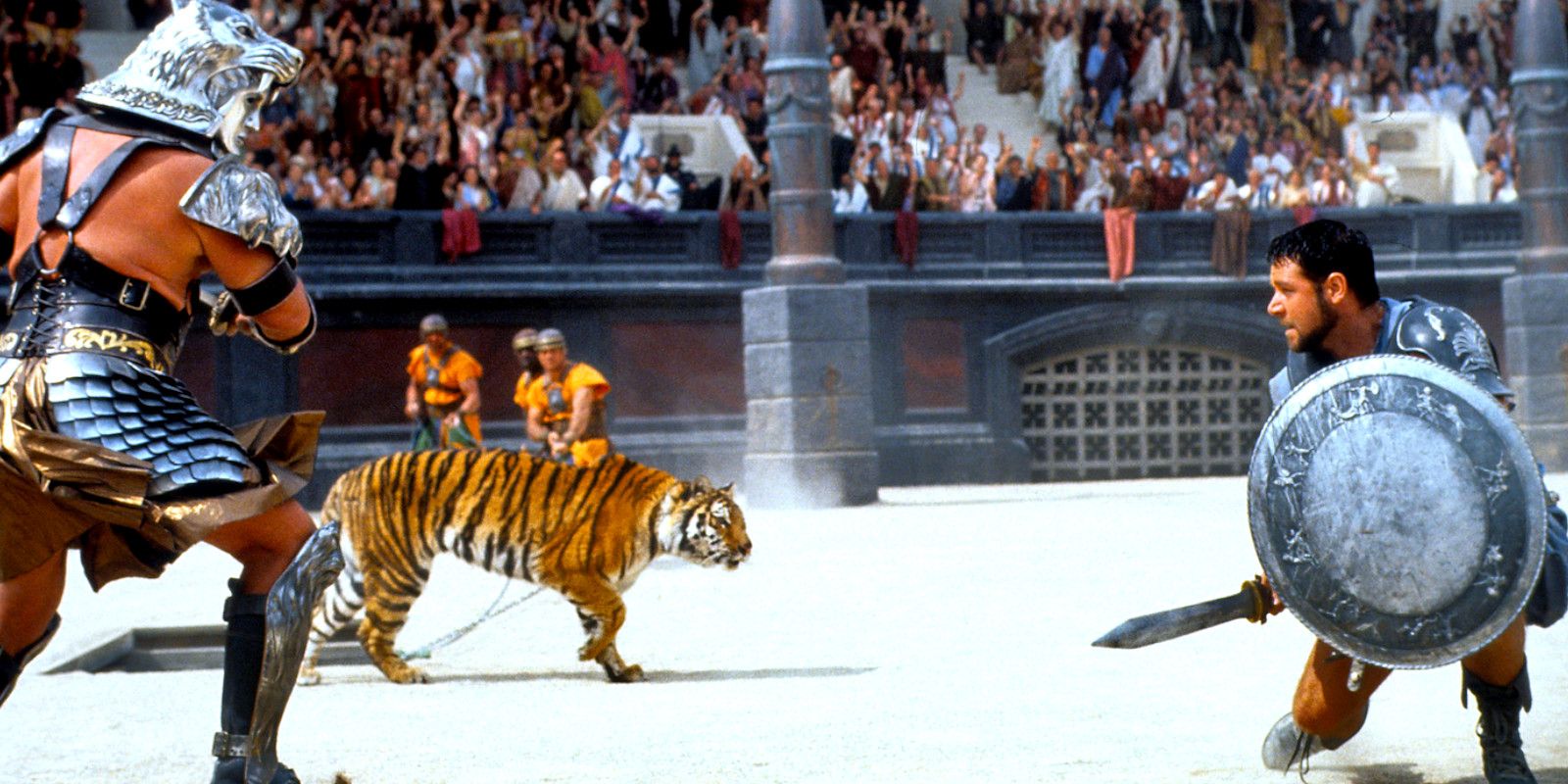
Gladiator won numerous accolades, including Best Picture at the 2001 Academy Awards, and remains a popular and highly quoted historical epic. However, few movies that have their basis in history stick directly to the facts, often intentionally making adjustments to the history they’re based upon. Gladiator doesn’t rise to Braveheart-levels of outright disregard towards history, but the movie also isn’t something one should use in lieu of actual history books when studying Roman history. Here’s how accurate Gladiator is to the history of Rome and how close it is to the Gladiator true story.
The Characters Have A Basis In Roman History

It isn’t uncommon for movies drawing from history to boil traits of numerous historical figures down into a single character, and Maximus is one such example of this in Gladiator. Though a completely fictional character, Maximus is inspired by figures such as the wrestler Narcissus, who was the killer of Commodus. Cincinnatus also partially formed the basis for Maximus, being a farmer who was appointed Emperor, and who stopped an invasion of the empire before stepping down after a brief fifteen-day rule. Maximus is also inspired by Marcus Nonius Macrinus, a general who was close to Marcus Aurelius and who was appointed Roman consul in 154 AD.
Tiberius Claudius Pompeianus is also reflected in Maximus, having been married to Lucilla. He was also possibly the preferred candidate to succeed Marcus Aurelius in the Gladiator true story. On top of all of these examples, Spartacus also influenced an element of Maximus, specifically in how Spartacus sparks a slave rebellion similar to Maximus in Gladiator. When it comes to the villainous Commodus, he was an actual Roman Emperor who actually engaged in gladiatorial combat in the Colosseum, as seen in the film. However, this was not where his death took place, while the circumstances of his reign as Caesar differ in key respects from what’s shown in Gladiator.
Where Gladiator Takes Historical License

Gladiator significantly fictionalizes elements of the reign of both Marcus Aurelius and Commodus, notably in the former’s death. Commodus didn’t actually murder his father, with Marcus Aurelius dying during the Antonine Plague. Prior to his death, Marcus governed Rome side-by-side with his son for three years, while the Marcomannic Wars, depicted in Gladiator‘s opening battle scene in Germania, persisted after the death of Marcus. Lucilla’s son Lucius Verus (Spencer Treat Clark) is also fictionalized, having died before Commodus became Caesar, and much of the reign of Commodus in the Gladiator true story is also dramatized for the purposes of the story.
Commodus ruled as Caesar for twelve years. Rather than dying in the Colosseum, he was actually killed in his bath by Narcissus. Lucilla was also part of the plot to overthrow Commodus, but after being caught in the plot, was exiled to Capri before her subsequent execution. The death of Commodus also led to the Year of the Five Emperors in 193 AD, with a power struggle erupting, as Pertinax, Didius Julianus, Pescennius Niger, Clodius Albinus, and Septimius Severus each reigning as Caesar.
How Accurate Is Gladiator Overall?

There are other (more minor) historical elements of the Gladiator true story that are fictionalized. For example, Marcus Aurelius did not ban the Roman gladiatorial games outright but only did so in Antioch as retaliation for dissident general Gaius Avidius Cassius. Some actual historical elements were also omitted out of concern that audiences would not believe them as actual facts. Most notably, gladiators actually did product endorsements in ancient Rome – while an early draft of the script included this, this ended up being excised.
Some historical advisors on Gladiator did take exception to the level of accuracy the film strove for, with one requesting to not be credited and another reportedly stepping down. Ultimately, Gladiator is a classic example of historical fiction, telling an original story with historical elements without feeling compelled to adhere strictly to the facts. Like any historical epic, the goal of Gladiator, first and foremost, is to tell a compelling story. Commodus summarizes the beats of Maximus’ journey in Gladiator quite succinctly near the end of the film: “The general who became a slave. The slave who became a gladiator. The gladiator who defied an Emperor.”
Behind the historical backdrop of Rome, Gladiator is an emotional human story of Maximus losing everything he loves and being thrown into the lowest rung of life in ancient Rome. His revenge on Commodus and freeing Rome from his cruel reign cost him his life. However, Maximus’ story in Gladiator ends happily as he reunites with his family in his death, while Marcus’ dream of returning Rome to a republic becomes realized. The latter is another area where Gladiator diverges from the Gladiator true story, with Marcus having made no such effort to restore the Roman Republic.
Is Gladiator 2 Going To Be Based On A True Story?

Gladiator 2 is in production, and the movie will focus on Lucius, Commodus’s son, and the film will take place 20 years after the events of the original movie. That’s all that’s known about the Gladiator 2 story so far, but the film could interpolate real historical events into the narrative just like the original movie did. Joseph Quinn and Fred Hechinger have been cast as Caracalla and Geta, respectively. Caracalla and Geta were two real co-emperors from 198-217 AD, and Caracalla is notable for the Antonine Constitution, which grants Roman citizenship to all free men, and the Gladiator sequel could fulfill Maximus’ ambition with the real-life constitution.





